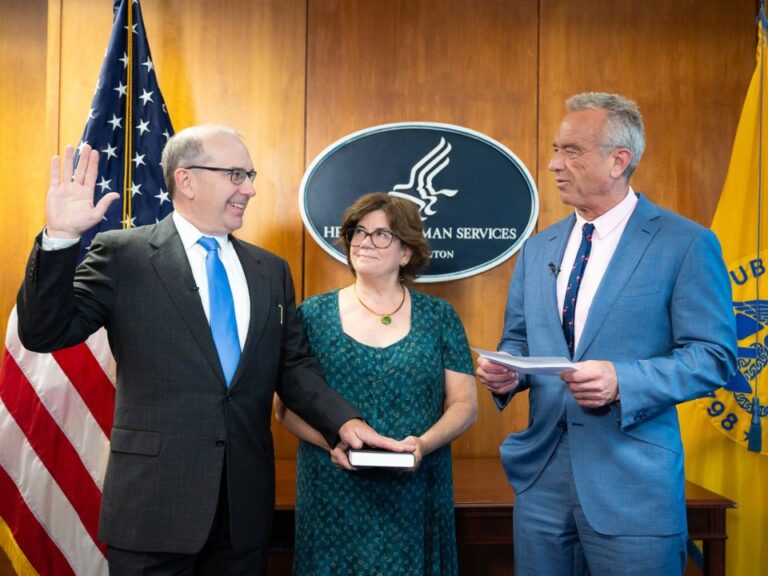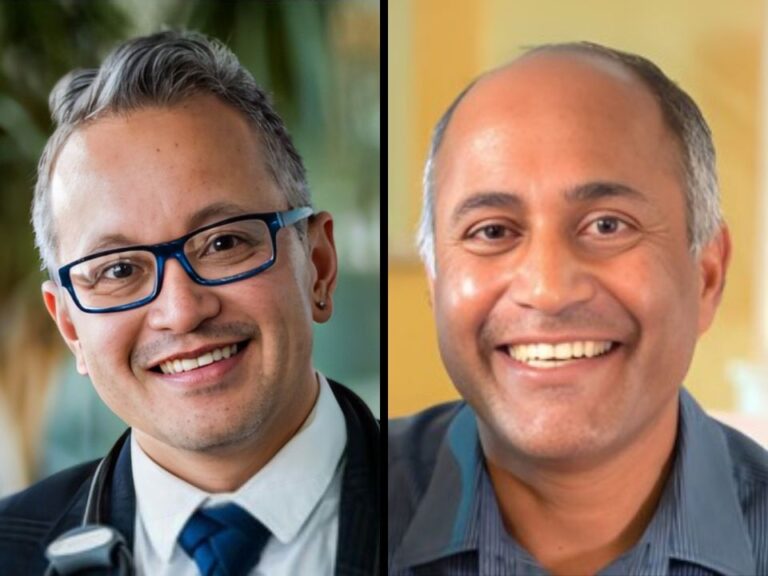Device manufacturers looking to market surgical tools for use in the prevention or treatment of cancer may now be required to study long-term oncologic endpoints in surgical trials, according to a safety communication published by FDA on Feb. 28.
The advisory is the agency’s response to questions—including from The Cancer Letter—about whether robotic surgical devices should be used in indications where cancer may be a concern. In such instances, cancer-related safety data may now need to be generated and reviewed.
“The FDA takes women’s health issues very seriously,” agency officials wrote. “The FDA is issuing this safety communication because it is important for health care providers and patients to understand that the safety and effectiveness of using robotically-assisted surgical devices in mastectomy procedures or in the prevention or treatment of cancer has not been established.”
The full text of the advisory, “Caution When Using Robotically-Assisted Surgical Devices in Women’s Health including Mastectomy and Other Cancer-Related Surgeries,” is posted here.
“Equivalence” trials designed to establish noninferiority of robotic procedures—using endpoints that specifically address cancer-related outcomes—would be necessary to demonstrate long-term safety and effectiveness.
“To date, the FDA’s evaluation of robotically-assisted surgical devices has generally focused on determining whether the complication rate at 30 days is clinically comparable to other surgical techniques,” FDA said in the advisory.
“To evaluate robotically-assisted surgical devices for use in the prevention or treatment of cancer, including breast cancer, the FDA anticipates these uses would be supported by specific clinical outcomes, such as local cancer recurrence, disease-free survival, or overall survival at time periods much longer than 30 days.”
In Dec. 2018, The Cancer Letter queried FDA about whether robotic surgical devices should be used for mastectomy.
The questions stemmed from a specific case where a robotic procedure was used in mastectomies—the latest case study in a five-year investigation on minimally invasive surgery and regulation of devices (The Cancer Letter, How Medical Devices Do Harm).
“Does FDA plan on issuing an advisory or guidance to curtail the routine use of robotic mastectomy outside the confines of a prospective clinical trial and absence of Level I data?” this reporter asked FDA.
In Nov. 2018, The Cancer Letter examined a discovery by gynecologic oncologists—that women who were subjected to minimally invasive surgery for early-stage cervical cancer were four times more likely to die from that disease within three years, three times more likely to have a recurrence within three years, and had shorter overall survival, compared to women who underwent open surgery, according to two groundbreaking studies published in The New England Journal of Medicine Oct. 31, 2018 (The Cancer Letter, Nov. 2, 2018).
“FDA is aware of scientific literature and media publications reporting poor outcomes for patients, including one limited report that describes a potentially lower rate of long-term survival when surgeons and hospital systems use robotically-assisted surgical devices instead of traditional surgery for hysterectomy in cases of cervical cancer,” the agency said in the advisory. “In addition, the FDA has received a small number of medical device reports of patient injury when these devices are used in cancer-related procedures.”
FDA has not granted marketing authorization for robotically-assisted surgical devices, and survival benefits for some of these procedures have not been established, agency officials said in a statement Feb. 28.
To evaluate robotically-assisted surgical devices for use in the prevention or treatment of cancer, including breast cancer, the FDA anticipates these uses would be supported by specific clinical outcomes, such as local cancer recurrence, disease-free survival, or overall survival at time periods much longer than 30 days.
FDA
“Certain patients with cancer may require surgical procedures to treat or prevent the spread of cancer in their body,” said Terri Cornelison, assistant director for the health of women in the FDA’s Center for Devices and Radiological Health. “These procedures are often associated with improved survival outcomes for these patients.
“However, today we are warning patients and providers that the use of robotically-assisted surgical devices for any cancer-related surgery has not been granted marketing authorization by the agency, and therefore the survival benefits to patients when compared to traditional surgery have not been established.
“Our surveillance using multiple tools—medical device reports, patient registries, scientific literature—helps us monitor and identify potential problems with medical devices as they arise. In the case of robotically-assisted surgical devices and cancer-related uses such as mastectomy, we are aware of scientific literature reporting that surgeons have been using the device for uses not granted marketing authorization by the FDA.
“We want doctors and patients to be aware of the lack of evidence of safety and effectiveness for these uses so they can make better informed decisions about their cancer treatment and care. This safety communication issued today reflects the agency’s commitment to enhancing our oversight of device safety as part of our Medical Device Safety Action Plan, as well as the agency’s ongoing commitment to advancing women’s health.”












